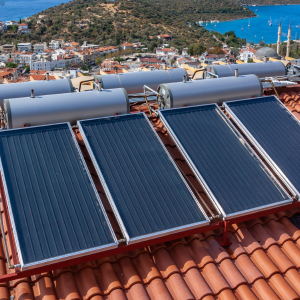In today’s world, where sustainability is becoming increasingly important, solar water heaters offer a powerful solution to reduce energy consumption and minimize environmental impact. However, just purchasing and installing a solar water heater isn’t enough to guarantee you’ll reap the maximum benefits. Transparency plays a crucial role in the installation process. Whether you’re a homeowner or a business, understanding the full scope of your solar water heater installation can help you make informed decisions, avoid unexpected costs, and ensure long-term satisfaction.
What Does Transparency Mean in Solar Water Heater Installation?
Transparency in solar water heater installation means clear communication between the service provider (installer) and the customer regarding every aspect of the system—costs, installation process, maintenance needs, performance expectations, and potential challenges. It involves honesty, clarity, and full disclosure from the installer to ensure that customers have a clear understanding of what they are getting, how it works, and how it benefits them.
Here’s why transparency matters:
1. Clear Breakdown of Costs
One of the most significant areas where transparency matters is in the cost breakdown. A professional installer should provide a detailed and clear estimate that covers the following:
- Product Costs: The cost of the solar water heater system itself, including solar panels, collectors, tanks, and accessories.
- Installation Costs: The cost of labor, any necessary equipment, and additional installation services.
- Maintenance & Warranty: Costs related to long-term care, warranties, and any potential maintenance fees that may arise in the future.
- Optional Add-ons: If any additional components are required or recommended (e.g., heat pumps or advanced monitoring systems), these should be clearly explained and priced.
Being transparent about these costs helps customers understand the financial commitment and avoid surprise charges once the installation is underway. It also ensures you’re not paying for services or components you don’t need.
2. Accurate Time Estimates
Transparency also extends to setting proper expectations regarding the installation timeline. An experienced installer will give you an accurate estimate of:
- How long it will take to complete the installation.
- Any potential delays due to weather, equipment availability, or other unforeseen issues.
Knowing what to expect in terms of time helps you plan accordingly and minimizes frustration. When installers are upfront about possible delays, you’re better equipped to make decisions and avoid unnecessary stress.
3. Clear Explanation of System Design
Each solar water heater installation is unique to the property and the customer’s needs. A transparent installer will take the time to:
- Evaluate the Property: The installer should assess the site for optimal placement of the solar panels, considering factors like roof size, angle, sun exposure, and any potential obstructions (e.g., trees, chimneys).
- Design the System for Efficiency: The design should be based on your specific hot water needs, taking into account the number of people in your household or the size of your business. A transparent installer will explain the reasoning behind the design, including why certain panels, systems, or configurations are chosen.
This level of transparency helps you understand how your system works and why it’s tailored to your particular needs. It also ensures you’re getting a system that maximizes energy efficiency.
4. Understanding Performance Expectations
Transparency regarding performance expectations is key to managing customer satisfaction. A professional installer will:
- Provide realistic expectations about how much energy the solar water heater will save.
- Explain factors like geographical location, weather conditions, and system efficiency, which can impact performance.
- Discuss what you can expect in terms of the system’s lifespan and performance over time.
Being transparent about these details helps you make informed decisions and ensures you aren’t disappointed by unrealistic claims.
5. Maintenance and Long-Term Support
Solar water heaters require ongoing maintenance to ensure their long-term efficiency. A transparent installer will:
- Outline Maintenance Needs: Provide clear guidance on what maintenance tasks are needed (e.g., cleaning the panels, checking for leaks, etc.) and how often they should be performed.
- Discuss Warranty Terms: Explain warranty coverage in detail, including what is covered, the duration of the warranty, and any maintenance required to keep the warranty valid.
- Provide Post-Installation Support: A reputable installer should offer continued support after the installation is complete. This might include routine check-ups, troubleshooting, and customer service for any system-related issues.
When an installer is transparent about these aspects, it ensures that the customer is aware of their responsibilities and the ongoing care needed for the system to perform optimally.
6. Environmental Impact and Sustainability
Finally, transparency is crucial in communicating the environmental benefits of installing a solar water heater. The installer should provide:
- Environmental Benefits: Clear information about how the system will reduce your carbon footprint and reliance on non-renewable energy sources.
- Energy Savings: Transparent discussions about how much energy and money you can expect to save in the long run.
- Potential for Future Upgrades: Information about future technologies and upgrades that may enhance the system’s efficiency.



